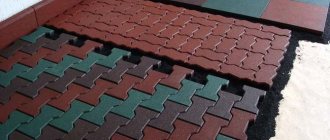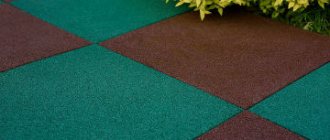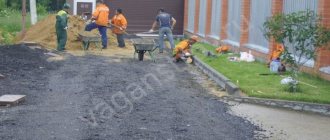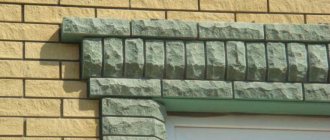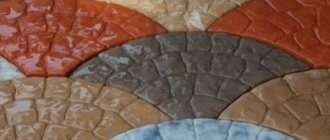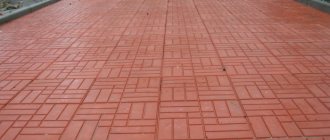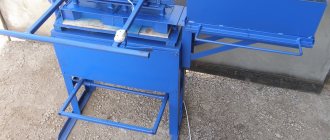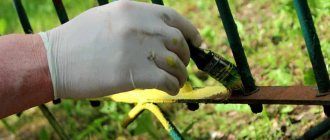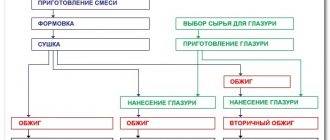Among the newest building materials that have recently appeared on the Russian market, rubber tiles can be distinguished. Although this is a rare, but quite promising product. In this article we will look at the technology of its production and the equipment that will be needed for the production of rubber tiles.
Rubber paving slabs
To understand what material an entrepreneur will be dealing with, let's look at several of its characteristics. Firstly, the service life that manufacturers promise is on average 20 years. Secondly, this coating has anti-slip properties, which expands the possibilities of its application. Thirdly, the rubber tile has sufficient elasticity to prevent the formation of an ice crust on it.
How much money do you need to start a business?
Starting investments are from 2 million rubles, this is how much the equipment, its delivery and setup will cost. Rented premises will cost 30 thousand rubles. per month. Remuneration for workers in 2 shifts - 170 thousand rubles. in 22 working days.
Costs of consumables.
For 1 sq.m. rubber tiles 40 cm thick and 50 by 50 cm in size. Rubber crumbs - 25-26 kg, coloring pigment - 350 grams, glue (polyurethane) - 2.45 kg. Price for 1 kg: glue - about 148-150 rubles, crumbs - 15 rubles, and pigment - 80 rubles. As a result, the cost of consumables is about 780 rubles. Plus manufacturing costs - approximately 120 rubles. Therefore, the cost of producing 1 sq.m. tiles will cost nine hundred rubles.
Registration of business in the organizational and legal field
To register a business, you need to decide on the organizational and legal form. Will it be an individual entrepreneur or LLC. You should also choose a tax payment system:
- general (if you do not submit an application to switch to another tax regime, you will automatically switch to OSNO);
- patent;
- simplified.
Usually they choose a patent or a simplified version.
Documentation
To open an individual entrepreneur you will need the following documents:
- application for registration of individual entrepreneurs;
- copy of the passport;
- receipt of payment of state duty (800 rubles).
You can open an individual entrepreneur within a few working days by submitting an application to the tax office in your region.
To open an LLC you will need more documents:
- application for registration of LLC;
- founder's decision;
- LLC charter;
- receipt of payment of state duty (RUB 4,000);
- a letter of guarantee for the provision of a legal address or the consent of the owner when registering at the home address.
You will also need an authorized capital of 10,000 rubles. Typically, an LLC is registered when a large enterprise or company with several founders is launched. It is easier for an LLC to enter into contracts with legal entities than for an individual entrepreneur. In addition, an LLC is not liable for debts with the property of its founders.
Selecting OKVED
When registering a business, the economic activity code is indicated. The following are suitable for the production of rubber tiles:
OKVED code 22 – production of rubber products;
OKVED code 22.19 – production of other rubber products.
After registering an individual entrepreneur or LLC, it is also necessary to register with the pension fund and social insurance fund. You also need to open a company or individual bank account.
Obtaining the necessary permits and certificates
The next step is to obtain permits from:
- local administration;
- fire inspection;
- Sanitary and epidemiological stations.
To do this, the premises must comply with all fire safety and sanitary and epidemiological standards. You must have a lease agreement and a waste removal and disposal agreement.
Any polymer coating must be certified for fire safety.
During the inspection, authorities authorized by the Ministry of Emergency Situations will check combustion toxicity, speed of ignition and flame spread, etc., and issue a certificate. Additionally, you can undergo voluntary certification for compliance with GOSTs. This will help ensure customer loyalty and promote sales growth.
What equipment is needed for tile production?
To open a workshop you will need the following equipment:
- mixers or raw mixers (at least 2 pieces);
- volcanic press;
- pressing molds;
- drying chamber.
Rubber crumbs and other components of the working mixture are loaded into the mixer. This equipment has low-speed blades that can thoroughly mix everything. Typically, the glue and solid components of the crumb are mixed separately, which is why at least two pieces of equipment are needed.
Hot pressing equipment
Press molds must be placed on molding tables. There they are filled with a mixture for rubber tiles. The molds are then placed in special carts and placed under pressure. After this, the carts are moved to the drying chamber. The temperature is low, only 60 degrees, but high humidity is maintained to provide a sauna effect. Under such conditions, chemical processes occur that ensure a tight connection of particles of crumbs, glue and coloring matter. The crumb increases in volume, voids appear, which are completely filled with the binder composition.
Cold pressing
The productivity of the entire production line is determined precisely by the dimensions of the drying chamber. Its minimum volume, which ensures profitable production, is 200 sq.m. Depending on the size, other equipment is selected - carts and molds.
Risks
This production has not only advantages. There are also a number of risks. This is due to the lack of specialists who know the technology of creating products. In this case, you can do it in two ways - find a technologist or train employees in this activity yourself. But then you need to be a professional yourself.
Seasonality plays an important role. Rubber tiles are used outdoors and in car service centers, garages, animal facilities, as well as areas near swimming pools and gyms. It is advisable to open a business in late winter and early spring. In the fall, the products will also be in demand as street improvements take place.
The enterprise will function normally only if there is always the required amount of raw materials. For average production, a stock of 100 tons is needed. The risk is equipment breakdown, so you need to be especially careful when purchasing it.
If you calculate all costs, then the market price of the product will be equal to 1350 rubles per 1 sq.m. The daily profit will be about 16.5 thousand rubles, and 350 thousand per month. The payback period reaches 145 working days if the profitability is 40%.
The production of rubber tiles is a popular industry. If you approach business organization wisely, you can make it profitable in a short time. The main thing is to have everything necessary to produce quality products.
Raw materials and technology for the production of rubber paving slabs
The raw materials used are another advantage of the rubber tile production technology. Crushed rubber is used as it - the result of recycling car tires. The material of tires has all the advantages that should be inherent in paving slabs:
- Wear resistance and strength;
- Elasticity and at the same time the ability to maintain shape;
- Resistant to alkaline and acidic environments.
Like any secondary raw material, the cost of crumb rubber is very affordable. 1 kg of material does not exceed 30 rubles. The price of crumbs may be lower, it depends on the processing technology, size and color.
The production of tiles from rubber crumbs can be established in two ways: hot and cold pressing. The equipment for them is largely similar. The first method is not widely used, as it has a number of side effects. With the increase in production efficiency, the quality of products began to deteriorate noticeably: wear resistance decreased, and an unpleasant odor appeared in the finished product. The cold pressing method of crumb rubber does not produce such side effects. The technology consists of the following stages: mixing raw materials, pressing at normal ambient temperature, drying in special chambers for 4-6 hours.
Business plan
The production of rubber tiles from crumbs is not very expensive. To create a small plant, you will need approximately 1,200,000 rubles.
To ensure the production process you need:
- an area of approximately 120-130 m2 for a workshop and warehouses for storing raw materials and finished products;
- 3-4 workers for one shift;
- accountant and manager.
1 m2 of tiles can be sold for 1,700 rubles, and 100 tiles can be sold wholesale for 62,000 rubles.
The profitability of such production is quite high - around 20-40%, and if up to 35 m2 of products are produced per day, then the costs incurred will pay off in 4-6 months.
During this time, you can receive sales revenue of about 7.5 million rubles. (35·1700·21 days·6 months = 7,497 thousand rubles).
Monthly:
- Income 35·1700·21 days. = 1,249.5 thousand rubles.
- Expense 920 thousand rubles.
- Profit 1249.5-920 = 329.5
Profitability will be:
329,51249,5∙100%= 26,4%
By gradually developing your business and increasing productivity, you can achieve a higher level.
Production Features
The production of multi-colored and black paving slabs from rubber crumbs has different costs. When dyes are added to the composition, the amount of adhesive solution increases significantly, so colored products are more expensive. The selling price of rubber paving slabs also depends on the cost of raw materials. Large chips, as a rule, cost less, but they are less easy to paint. In order to minimize costs, the production of rubber paving tiles was established using a two-layer technology. The lower part is a layer of a larger fraction of raw materials, and the upper part is made of fine crumbs, which are easier to paint and apply designs.
0
Sales market
At the initial stage, it is very important to find sales markets in order to provide the company with constant orders. It is better to look for such customers among the following clients:
- construction companies that maintain housing stock;
- companies responsible for the improvement of parks and recreation areas;
- HOA;
- management companies;
- administrations of cities and districts;
- companies involved in the sale and installation of playgrounds;
- companies responsible for installing outdoor sports equipment;
- landscape designers.
You can identify a circle of clients and send them commercial offers or leave requests on wholesale trading platforms. This way you can reach customers from other regions. After contacting managers of construction companies, they usually practice “cold calls”, in which they describe the benefits of cooperation with you and offer to hold a meeting/conclude a contract.
Car tires as raw materials for recycling
More and more countries have recently been paying attention to the problems of using waste in production, including used tires, which are one of the largest volumes of polymer waste. Tires that are already out of service cause great harm to the ecological environment, since the places where they accumulate only contribute to the habitat of a number of rodents and insects
Rubber is highly resistant to external factors and there is no point in burning such a valuable material in the household. The process of recycling tires by burning pollutes the environment for a long time. As you know, rubber, when burned, releases toxic and harmful components that have a destructive effect on the environment.
Tires that are already out of service cause great harm to the ecological environment, since the places where they accumulate only contribute to the habitat of a number of rodents and insects. Rubber is highly resistant to external factors and there is no point in burning such a valuable material in the household. The process of recycling tires by burning pollutes the environment for a long time. As you know, rubber, when burned, releases toxic and harmful components that have a destructive effect on the environment.
It is much more rational to grind tires into small fractions and use them as raw materials for the production of useful and durable building materials. In modern life there are many areas where crumb rubber is used - it has proven itself well and is becoming increasingly popular. The demand for this product is growing from year to year. Crumbs are used in many industries, for example:
- used in the construction of highways and rail linings;
- when improving areas around municipal and commercial facilities;
- in the construction of children's and sports facilities, as well as for many other suitable needs.
Another problem with the use of used tires is the economic factor, since the cost of household needs is constantly increasing. In addition, after the elimination of waste tire dumps, significant areas of land occupied by them will be freed up for their intended use.
Marketing
You can offer your products to a wide range of potential buyers. Be sure to post advertisements in the private sector - residents of cottage villages will definitely be interested in your products. Advertising in local media is also effective.
It is necessary to work with wholesale buyers personally. Meet with managers of wholesale warehouses and stores of building materials, large and small construction firms, organizations and private companies specializing in landscaping. Make an attractive business proposal, offer preferential terms of cooperation to wholesale or regular customers.
It is important to have a full set of certificates and focus on the environmental friendliness, durability and reliability of your tiles. Expand your range as much as possible. If large organizations value standard and universal sizes and colors, then design firms prefer a wide selection of exclusive types.
Seasonal discounts are also something to think about. Large wholesale buyers practice purchasing goods at low prices during quiet periods. Reasonable price reduction, allowing you to benefit from selling large quantities better than simple ones.
Consider having a professional crew install your tiles. This will be a success with private customers. If you can provide comprehensive services, your company's reputation and income will definitely grow.
Technological process
- Crushing rubber, obtaining crumbs.
- Rubber fraction, polymer glue, dyes and modifying additives are added to the mixer.
- The mixture is mixed and loaded into special molds.
- Pressing raw material into tiles of the desired thickness and shape.
- Baking is the finishing process. There are two ways: “when cold,” the molds are sent to thermal cabinets. There, the raw materials are processed at low temperatures. “Hot” vulcanization requires high temperatures.
During hot processing, pressure is applied to the tile at a temperature of 140C. The procedure takes 15 minutes. Cold processing lasts 4 hours or more, and the temperature is only 80 C.
Crushing methods
There are two main methods used in production:
- mechanical crushing;
- shock wave crushing.
Mechanical crushing involves grinding the material using special cutters. The low cost of equipment and simple technological process make this method popular and often used.
- The metal seating ring is removed;
- The rubber tire is cut into strips 5-7 cm wide;
- The remaining seat rings are removed;
- The rubber is crushed to obtain crumbs with a fraction of 5 mm;
- Finally, the resulting crumbs are sorted into fractions.
Shock wave crushing and grinding requires the use of special equipment. In a specially equipped chamber, the rubber is subjected to shock wave treatment. The entire process is automated and requires the participation of one operator.
Where is it used?
Application of rubber tiles:
- Playgrounds;
- Treadmills and more;
- Parking;
- Flooring of administrative buildings;
- As part of landscape design.
Documents and licenses
It is better to hire a specialized law firm to prepare a package of documents. Choosing a registration form and type of taxation is not particularly difficult. You can register as an individual entrepreneur and work on a simplified system. If you want to sell rubber tiles to legal entities, develop your production and attract investors, form an LLC.
Difficulties begin in the process of product certification. It is necessary to go through the process of confirming compliance with the technology, assessing the quality of compliance with the declared standards of raw materials and equipment. Without the help of an experienced lawyer, these procedures are delayed and lead to unnecessary financial losses.
Tile molds
You can make molds for rubber tiles yourself. But this activity will take a lot of your time and money, so it is better to purchase ready-made products or order their production according to a sketch.
Before use, do not forget to treat the mold with soapy water or silicone so that the solution does not stick to it. Non-metallic molds, after removing the finished rubber, are treated with an acid solution to eliminate dust.
Tips for beginners
Before starting your own business, you should collect all the necessary documents and obtain a certificate for your products. It is also recommended to find a trusted supplier of equipment and raw materials in advance. In this case, you can hope for warranty service for the equipment, which will avoid long downtime. It is necessary to outline in advance possible markets for the finished material. You should also rent a territory of sufficient area for production and storage of products. After this, you can start purchasing equipment and raw materials, finding personnel and starting work.
Features and Benefits
This relatively new material is rapidly gaining high positions among the variety of different types of coatings, both in cities and in suburban areas. Rubber tiles are made from waste obtained during the mechanical destruction of tires, the problem of disposal of which is acute in Russia.
Tire crumbs retain all the original qualities of rubber: molecular structure and elastomeric properties. This allows it to be successfully used for the production of a large number of useful products, among which this tile has become the most popular.
Its useful consumer qualities:
- durability - service life is up to 15 years;
- anti-slip effect - protects against accidental injuries;
- aesthetics - it is possible to add color pigments;
- frost resistance - does not crumble even in 40-degree frosts;
- biostability - not destroyed by fungus, does not mold;
- strength - the ability to withstand high loads.
Rubber tiles have so many advantages that the growing popularity of this building material does not surprise anyone. The only drawback is the relatively high cost compared to concrete and other types of covering paths and areas.
Currently, in our country only about 20% of used tires are processed into crumbs. Every year the number of plants for their recycling increases, therefore, raw materials will become cheaper. This industry is only at the beginning of its development, and, accordingly, the production of rubber tiles and coatings is not only profitable, but also a very promising business.
Before we begin
Rubber tiles are just beginning to conquer the Russian building materials market. Competition is minimal, prospects are very optimistic. But potential consumers do not know enough about this material. Your initial task is to find potential wholesale buyers in your locality and region. To do this, you should draw up a competent business plan, a commercial proposal with a clear list of advantages and prices of new tiles, and conclude at least several preliminary agreements with construction companies and stores. When starting the release of an innovative and poorly known product, it is recommended not to study, but to create demand.
Room
For full-fledged production you will need about 500 sq. m of area divided into functional zones - a heated workshop of at least 80 sq. m, warehouse, utility rooms. They must meet the requirements:
- Distance from residential complexes by 300 m or more
- Ceilings with a height of 3 m, a flat base that can withstand, according to design documentation, the weight of the equipment
- Temperature at any time of the year not lower than +15°С
- Availability of a power line with a power of 20 kW
The premises need to be renovated and prepared for the installation of a production line.
